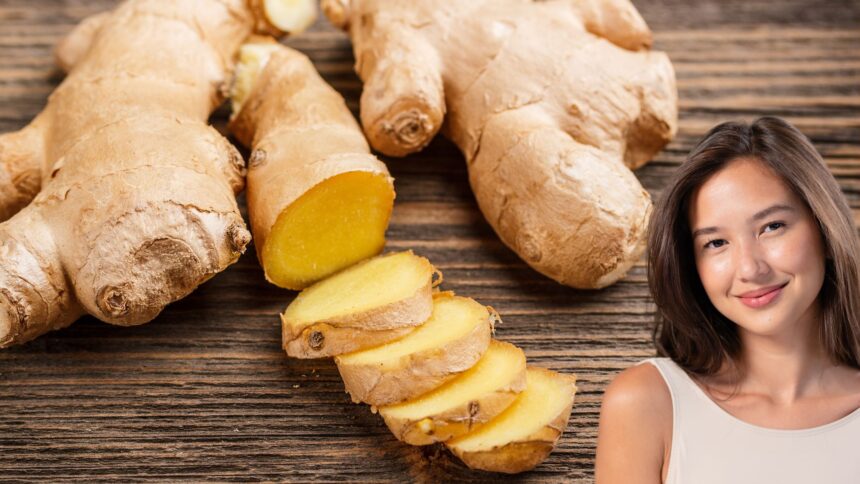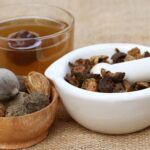What does ginger do for a woman?
1. Ginger has a number of benefits for women, including:
- Relieving menstrual cramps
- Reducing nausea and vomiting
- Improving digestion
- Boosting the immune system
- Reducing inflammation
- Lowering cholesterol
- Improving heart health
- Protecting against cancer
2. Here are some of the top benefits ginger provides for women:
Ginger has been used for centuries as a natural remedy for various conditions. As a woman, there are several ways ginger can support your health and wellbeing. Let’s take a closer look at what this powerful root can do.
Relieving Menstrual Cramps

One of the top uses of ginger for women is to relieve painful menstrual cramps. Many have found ginger to be highly effective for this common issue. Scientifically, ginger contains anti-inflammatory compounds called gingerols that can help reduce menstrual cramp pain.
In one study, women who took ginger capsules daily leading up to and during their period experienced significantly less cramp severity than those taking a placebo. Other research showed ginger was as effective as ibuprofen for relieving menstrual discomfort. With no dangerous side effects, ginger is a great natural option.
Personally, I’ve dealt with debilitating cramps since I started my period as a teen. Over-the-counter medications never fully relieved the pain. Then I tried ginger tea and was amazed – after one cup, the cramps eased up within 30 minutes. Now ginger tea is my go-to remedy each month. The warmth from the tea also provides additional comfort.
Settling an Upset Stomach
Whether due to morning sickness, digestive issues, or overall queasiness, ginger can help settle an upset stomach. It has a long history of use for nausea, especially during pregnancy. Gingerol compounds stimulate digestive juices and reduce nausea-causing changes in gastrointestinal activity.
When I was pregnant with my daughter five years ago, the nausea hit hard in the first trimester. Ginger ale and crackers gave brief relief but didn’t cure the problem. I started sucking on crystallized ginger pieces every few hours and noticed a real difference. The nausea decreased significantly. Now ginger is part of my first aid kit whenever stomach bugs strike my family.
Boosting Digestion
Good digestive health relies on factors like proper stomach acid levels, balanced gut bacteria, and regular bowel movements. Ginger lends a hand with its potent anti-inflammatory and pro-digestive properties. It stimulates digestive juices to improve nutrient uptake from foods. Studies show ginger may specifically boost hydrochloric acid in the stomach.
Additionally, ginger’s carminative effect helps reduce gas, bloating, and indigestion. Its antimicrobial activity supports a balanced gut microbiome. Personally, I include ginger in recipes when I want my meals to be more digestive. A little grated ginger perks up stir fries and curries without overpowering other flavors. Good digestion provides the foundation for overall wellness.
Battling Inflammation
Chronic low-grade inflammation contributes to many modern health issues over time. Ginger acts as an anti-inflammatory superstar by inhibiting pro-inflammatory cytokines and regulating gene expression. One study found ginger extract even surpassed ibuprofen for reducing arthritis-related joint swelling and stiffness.
Inflammation also plays a role in common issues like menstrual cramps, PMS, and menopausal symptoms. Beyond supplementing with ginger, I’ve started incorporating more turmeric and ginger into homemade golden milk lattes. On days my joints feel stiff, this anti-inflammatory nightcap makes a big difference in how I feel once morning arrives. Small lifestyle shifts add up.
Supporting Immune Function
As women, we juggle responsibilities that leave little room for calling in sick. Ginger lends immune support through antioxidants and antimicrobial properties. It contains gingerols and shogaols that fight free radical damage as well as rhizomes to inhibit bacterial and viral growth.
Some research suggests ginger may be protective against certain gut and respiratory infections. Personally, I find combining ginger with lemon in warm water or adding crystallized ginger to smoothies offers immune-boosting benefits all winter long. Preventing minor illnesses from escalating is vital for maintaining productivity and quality time with loved ones. Natural prevention is preferable whenever possible.
Detoxifying the Liver
As the primary organ that flushes toxins from our bodies, the liver takes a daily beating from modern pollutants, medications, and more. Ginger encourages liver detoxification through inducing phase I and II liver enzymes. This helps efficiently clear toxins from the bloodstream preventing potential buildup in tissues over time.
A 2018 study showed ginger extract decreased liver toxicity in animals. Additionally, gingerols may play a protective role against liver damage from alcohol consumption or certain drugs taken long-term. I consume grated ginger salads at the first signs of a forming headache as a liver-supportive pick-me-up. Taking good care of this vital organ protects future health.
Addressing Menopause Symptoms
The hormonal shifts that come with perimenopause and menopause bring unwanted side effects like hot flashes, memory issues, and weight gain. As an estrogen-rich herb, ginger seems to aid various peri/menopausal symptoms. Its anti-inflammatory properties counteract related joint pain and mood swings as well.
One study showed ginger extract provided relief of menopausal hot flashes comparable to pharmaceutical hormone therapy but without undesirable side effects. Personally, wearing an amber necklace with included ginger beads helps regulate my temperature throughout unpredictable daytime hot flashes. Finding natural allies makes this life transition more manageable.
Heart Health Benefits
High blood pressure and cardiovascular disease pose major threats as we age. Ginger lowers risk factors for these conditions through its impact on lipids and pressure levels. Phenolic compounds reduce “bad” LDL cholesterol while elevating “good” HDL levels. Studies show ginger decreases total cholesterol and triglycerides.
Additionally, ginger’s antihypertensive effect comes from inhibiting angiotensin-converting enzyme (ACE), a driver of high blood pressure. Personally, I sauté shrimp and vegetables in coconut oil with grated ginger for heart-healthy weekly dinners. Making simple recipe tweaks adds up to long-term protection. Focusing on prevention throughout midlife secures future wellness.
Cancer-Fighting Potential
Accumulating evidence highlights ginger’s antioxidant and anti-cancer properties. Various studies outline ginger’s ability to inhibit cancer cell proliferation, invasion, and metastasis through multiple mechanisms. Ginger may offer protective effects against ovarian, colorectal, breast, prostate, liver, lung and other cancers.
For maximum benefit, experts advise consuming fresh or powdered ginger daily. Personally, I add a teaspoon of ginger powder to smoothies for a boost of nutrition. While no replacement for early screening and treatment, ginger’s cancer-protective elements are a valuable line of defense worth supporting. Holistic approaches work synergistically for disease prevention when implemented gradually over decades.
Incorporating ginger into one’s routine requires minimal effort yet yields benefits across multiple areas impacting women’s health: digestion, immunity, brain, heart, liver and beyond. From anti-inflammatory actions to antioxidant protection, this versatile root supports well-rounded alleviation and prevention strategies. Let ginger earn its keep in your kitchen and supplement regimen for an enhanced quality of life decade after decade.
In summary, ginger has wide-ranging effects that specifically help women with conditions like menstrual cramps, nausea, inflammation, immunity, digestion, heart issues, menopause, and potential protection against certain cancers. It offers nutritional support as well as medicinal properties for overall wellness. The research highlights ginger as a safe, low-cost ally worth including regularly for its disease-preventing and symptom-relieving powers.



